Related Research Articles

Sorrell Booke was an American actor who performed on stage, screen, and television. He acted in more than 100 plays and 150 television shows, and is best known for his role as corrupt politician Jefferson Davis "Boss" Hogg in the television show The Dukes of Hazzard.

Raiford Chatman "Ossie" Davis was an American actor, director, writer, and activist. He was married to Ruby Dee, with whom he frequently performed, until his death. He received numerous accolades including a Grammy Award and a Writers Guild of America Award as well as nominations for five Emmy Awards, a Golden Globe Award, and Tony Award. Davis was inducted into the American Theater Hall of Fame in 1994 and received the National Medal of Arts in 1995, Kennedy Center Honors in 2004

Purlie is a musical with a book by Ossie Davis, Philip Rose, and Peter Udell, lyrics by Udell and music by Gary Geld. It is based on Davis's 1961 play Purlie Victorious.
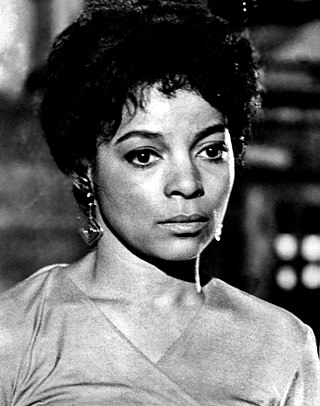
Ruby Dee was an American actress, poet, playwright, screenwriter, journalist, and civil rights activist. Dee was married to Ossie Davis, with whom she frequently performed until his death in 2005. She received numerous accolades including two Emmy Awards, a Grammy Award, a Obie Award and a Drama Desk Award as well as nominations for an Academy Award. She was honored with the National Medal of Arts in 1995, the Screen Actors Guild Life Achievement Award in 2000, and the Kennedy Center Honors in 2004.
Beulah Elizabeth Richardson, known professionally as Beah Richards and Bea Richards, was an American actress of stage, screen, and television. She was also a poet, playwright, author and activist.
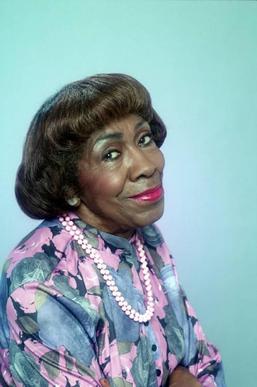
Helen Dorothy Martin was an American actress of stage and television. Martin's career spanned over 60 years, appearing first on stage and later in film and television. Martin is best known for her roles as Wanda on the CBS sitcom Good Times (1974–1979) and as Pearl Shay on the NBC sitcom 227 (1985–1990).

Beah: A Black Woman Speaks is a 2003 documentary about the life of Academy Award nominated actress Beah Richards. Directed by LisaGay Hamilton, it won the Documentary Award at the AFI Los Angeles International Film Festival in 2003, and a Peabody Award in 2004.
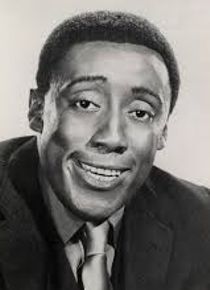
Godfrey MacArthur Cambridge was an American stand-up comic and actor. Alongside Bill Cosby, Dick Gregory, and Nipsey Russell, he was acclaimed by Time in 1965 as "one of the country's foremost celebrated Negro comedians."
The 7th Screen Actors Guild Awards, honoring the best achievements in film and television performances for the year 2000, took place on March 11, 2001. The ceremony was held at the Shrine Exposition Center in Los Angeles, California, and was televised live by TNT.
Nicholas Webster was an American film and television director.

Cotton Comes to Harlem is a 1970 American neo-noir action comedy film co-written and directed by Ossie Davis and starring Godfrey Cambridge, Raymond St. Jacques, and Redd Foxx. The film, later cited as an early example of the blaxploitation genre, is based on Chester Himes' novel of the same name. The opening theme, "Ain't Now But It's Gonna Be," was written by Ossie Davis and performed by Melba Moore. The film was one of the many black films that appeared in the 1970s and became overnight hits. It was followed two years later by the sequel Come Back, Charleston Blue.
Philip Rose was a Broadway theatrical producer of such productions as A Raisin in the Sun, The Owl and the Pussycat, Does a Tiger Wear a Necktie?, Purlie, and Shenandoah. His work was particularly notable for its social insight and distinctive social conscience.
The Black Filmmakers Hall of Fame, Inc. (BFHFI), was founded in 1974, in Oakland, California. It supported and promoted black filmmaking, and preserved the contributions by African-American artists both before and behind the camera. It also sponsored advance screenings of films by and about people of African descent and hosted the Oscar Micheaux Awards Ceremony, held each February, from 1974 to 1993, in Oakland.
The 28th Annual Tony Awards ceremony was held on April 21, 1974, at the Shubert Theatre in New York City, and broadcast by ABC television. Hosts were Peter Falk, Florence Henderson, Robert Preston and Cicely Tyson. The theme was "Homecoming", where stars from TV and film returned to Broadway to help present the awards or perform.
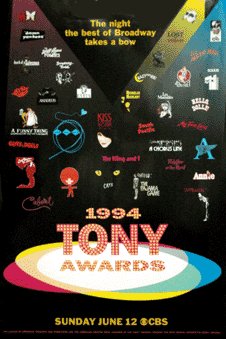
The 48th Annual Tony Awards was broadcast by CBS from the Gershwin Theatre on June 12, 1994. The hosts were Sir Anthony Hopkins and Amy Irving.

Alan Alda is an American actor. A six-time Emmy Award and Golden Globe Award winner and a three-time Tony Award nominee, he is best known for playing Captain Benjamin Franklin "Hawkeye" Pierce in the CBS wartime sitcom M*A*S*H (1972–1983). He also wrote and directed numerous episodes of the series.
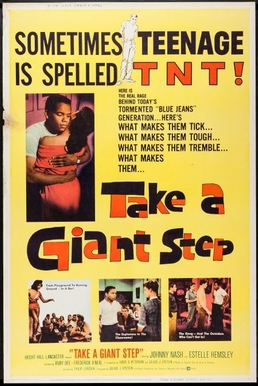
Take a Giant Step is a 1959 American coming-of-age drama film directed by Philip Leacock.
Barbara Ann Teer was an American writer, producer, teacher, actress and social visionary. In 1968, she founded Harlem's National Black Theatre, the first revenue-generating black theater arts complex in the U.S.
Broadway Answers Selma was a fundraising benefit concert held at the Majestic Theatre on Broadway on 4 April 1965. It was held to raise funds for the civil rights movement in the aftermath of the Selma to Montgomery marches.
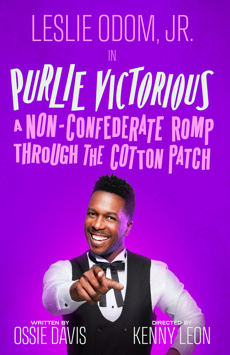
Purlie Victorious is a three-act comedic stage play written by American actor Ossie Davis. The play tells the fictional story of Reverend Purlie Victorious Judson, a dynamic traveling preacher returning to his hometown in rural Georgia, to save his small hometown church. The play—starring Davis himself in the title role—premiered on Broadway in 1961 and ran for 261 performances.
References
- 1 2 3 "Purlie and His Friends Return in a Film, 'Gone Are the Days!'". The New York Times. September 24, 1963.